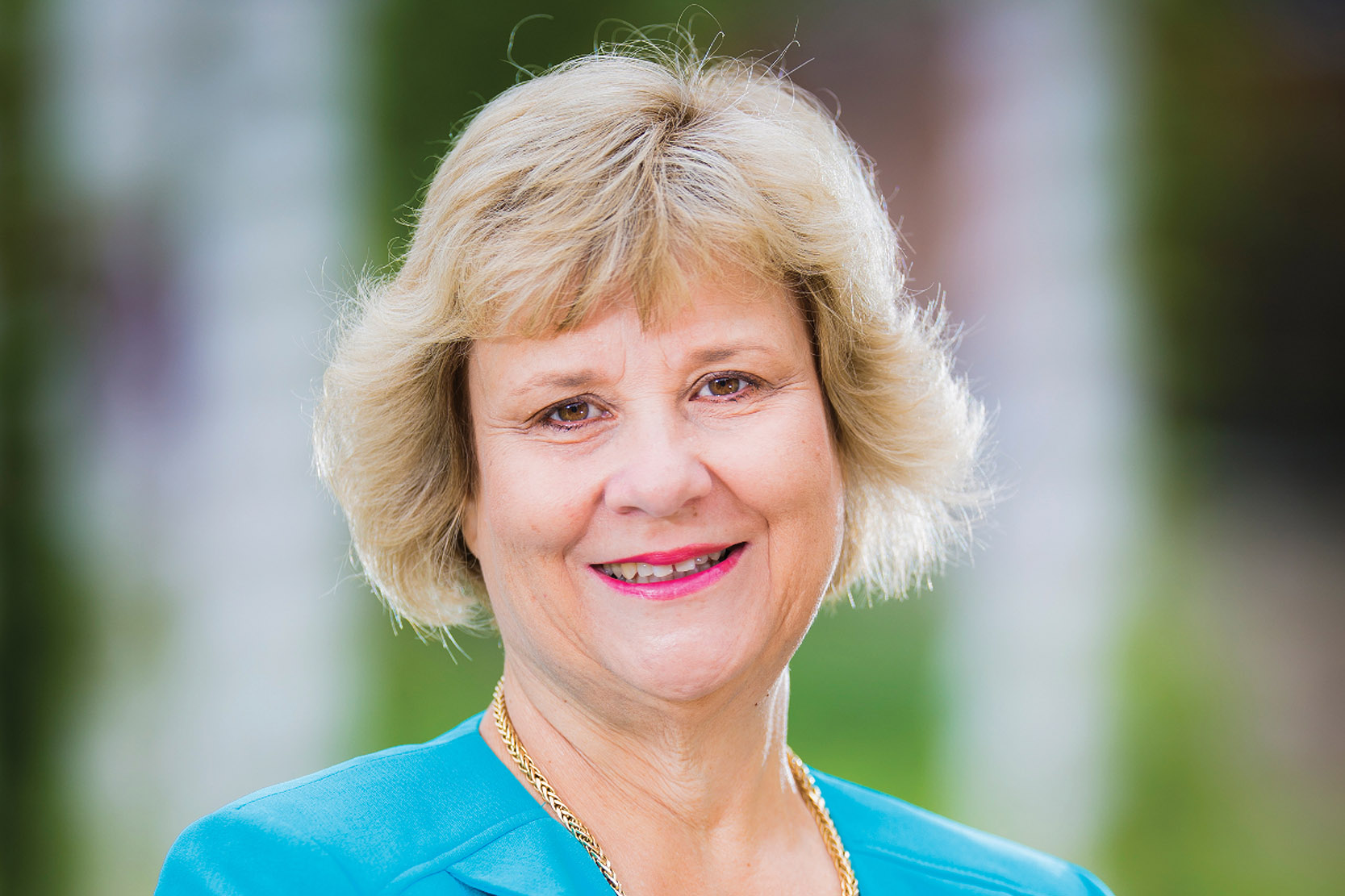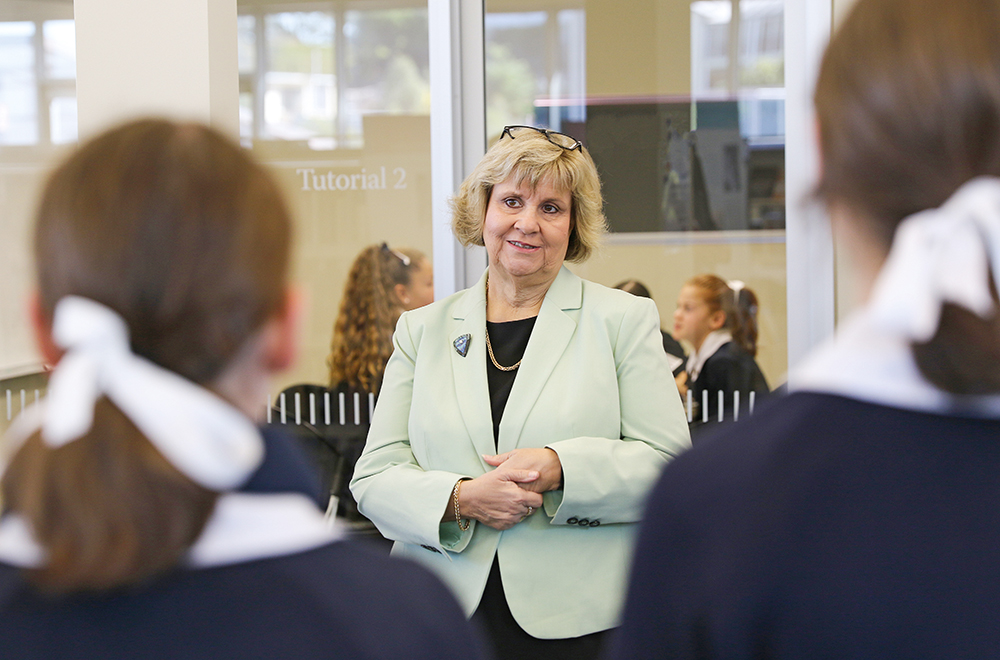Student Focused: Ros Curtis
St Margaret’s Anglican Girls School principal Ros Curtis believes the power of community and ongoing innovation are key for student success now and in the future.
One thing that remains constant is change. And nowhere is that more evident, perhaps, than in the dynamic world of work. With the onset of the gig economy, the demise of a forever career and the rapid pace of technology, the future of work is anyone’s guess.

Add the COVID-19 pandemic to the mix and there’s even greater uncertainty. The International Labour Organization has estimated that roughly 300 million jobs are at risk thanks to the pandemic – and of those, nearly 40 per cent will never come back.
So-called ‘frontline’ jobs like cashiers and retail assistants make up the majority of that 40 per cent. But as it stands, even the most respected jobs aren’t entirely futureproof. High-esteemed professions like lawyers and doctors are predicted to undergo dramatic transformation as well due to advances in artificial intelligence and machine learning.

Therefore, as an educator, it’s more important than ever to prepare students to adapt to these continual changes; teaching them not only what they need for this minute, but what they’ll also need for their future.
"If you think about my generation or even those younger than me, getting a good job was pretty straightforward. You went to a good school, you got your degree at uni and then you became somebody like a lawyer, teacher, nurse or doctor. Today it’s not that linear," says Ros Curtis, St Margaret’s Anglican Girls School Principal.
"Now, people tend to move from one career to another. A lot of them will go out on their own very early and some may not even work in a workplace; they’ll be working from home. So I really want to fully develop our careers education, which helps students think about what they’re going to do next. I think it’s really important that we do a lot of research in this area to come up with an approach that reflects what we believe this generation is going to need for their careers."
As a result, it’s paramount to continually upskill its educators. That’s why St Margaret’s created the Centre of Teaching and Learning Excellence. "We call it CETLE for short," Ros explains. "This centre of excellence is where we hold all of our professional learning programs for our staff. For us, it’s really important to build up their professional growth and learnings."
Combined with a culture of innovation, St Margaret’s is well positioned to help its students effectively navigate whatever the world throws at them. For example, during the height of the COVID-19 pandemic, the Brisbane-based independent school was able to switch to remote learning quite seamlessly because of systems it already had in place.
"Because of the IT system in our school and the level that we’re already at, we were able to shift to online learning within a day," Ros shares. "I closed the school just long enough to give the teachers time to get up to speed. They didn’t really need much because we were able to combine Microsoft Teams, OneNote and our own learning management system, and just get on with it."
My number-one priority has always been to keep a really solid, caring educational experience, while at the same time strengthening our community.
A little "trickier" was getting the boarding house of the school COVID-safe. "We had to reduce the numbers in boarding. Initially, some of our boarders couldn’t come back. And when they could, we couldn’t fit them all back in their house because of all the new social distancing regulations," Ros points out. "So we took over the local motel, the Albion Manor, placing the students there, which was also a relatively seamless process."
Ros credits a lot of the ease to effective and constant communication, and her staff. "I’m surrounded by really good people," she beams. "And in the early stages, I met with our leadership team every single day. I also wrote to the parents nearly 20 times throughout the pandemic. My number-one priority has always been to keep a really solid, caring educational experience, while at the same time strengthening our community."
To foster engagement and that sense of community pretty much everyone longed for in the early, isolated days of the pandemic, St Margaret’s held various contests and fun activities, encouraging its staff and students to participate.
"We had little competitions where we asked students to send in photos of their workspaces, and we also had them contribute their best remote-learning recipes where the winners’ recipes would be prepared and sold in the cafe when everyone returned to school," Ros says. "It was a really important part of building up our community during that time."
Ros has been Principal of St Margaret’s for more than a decade and has loved every minute of it – "I’ve never had a day where I haven’t wanted to turn up for work," she insists.
Thanks to her passion for education and steadfast leadership, the school has amassed great success. It has won a number of awards, including most recently being named the nation’s top boarding school for two years in a row, and one of Australia’s most innovative schools. And its enrolment numbers only mirror that success.
"Our enrolment numbers are at a historic high," Ros says. "There are a lot of stories that sit behind that, including a real focus on academic endeavour, high-quality staff members, upgraded facilities and all of that. But mostly, every decision we make is a student-focused decision. What defines us particularly is that St Margaret’s has the greatest sense of community among parents, staff and students. It’s what makes us special."
GLOBAL OUTLOOK
St Margaret’s Anglican Girls School considers itself a local school with a global outlook. This is fed by the fact that the non-selective independent school features a full boarding house, comprised of students from rural Queensland to regional New South Wales and across the globe.
"There’s a huge global emphasis within our school," Ros says. "We have a global exchange program where a third of our Year 10 students go overseas to spend roughly eight weeks and, likewise, we have students from those schools come to our school. It’s something that’s really important to us. And we do the best we can within a global environment to personalise the education for our students."
Proudly supported by: